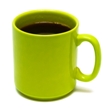
Consuming more caffeine might decrease the risk of developing tinnitus.
Tinnitus is a medical term for ringing in the ears, a common condition that affects millions of people. For some, symptoms may occur intermittently and they may only be mildly annoying. Others may have more serious symptoms that are persistent and cause people to seek medical help. Tinnitus can affect anyone, but it is most common among elderly people. However, it is becoming increasingly common among young people who are frequently exposed to loud noises, such as music.
In a recent study researchers analyzed data on 65,085 women 30-44 years-old from the Nurse’s Health Study II to assess the potential effects of caffeine intake on the risk for tinnitus. None of the women had tinnitus at the beginning of the study. Data on food intake and medical history were collected throughout the study.
Throughout the 18 year follow-up period, 5,289 cases of tinnitus were reported. The researchers found that women who consumed between 450 to 599 milligrams of caffeine daily had a 15% reduced risk of developing tinnitus when compared to women who consumed less than 150 milligrams, about the amount of caffeine in one cup of coffee. Furthermore, women who consumed over 600 milligrams of caffeine daily had a 21% reduced risk of tinnitus.
The authors concluded that high caffeine intake is linked to a reduced risk for developing tinnitus. Additional research is warranted to further evaluate these findings.
For information about caffeine, please visit Natural Standard’s Food, Herbs & Supplements Database.
The information in this brief report is intended for informational purposes only, and is meant to help users better understand health concerns. This information should not be interpreted as specific medical advice. Users should consult with a qualified healthcare provider for specific questions regarding therapies, diagnosis and/or health conditions, prior to making therapeutic decisions. Copyright © 2024 NatMed. Commercial distribution or reproduction prohibited. NatMed is the leading provider of high-quality, evidence-based, clinically-relevant information on natural medicine, dietary supplements, herbs, vitamins, minerals, functional foods, diets, complementary practices, CAM modalities, exercises and medical conditions. Monograph sections include interactions with herbs, drugs, foods and labs, contraindications, depletions, dosing, toxicology, adverse effects, pregnancy and lactation data, synonyms, safety and effectiveness.
